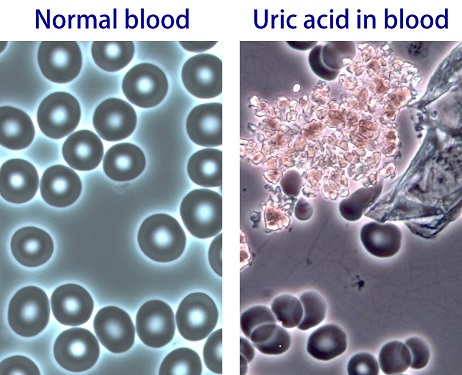Most commonly prescribed Gout medication options include:
Xanthine Inhibitors: These actually block the enzyme, (xanthine oxidase) necessary for the conversion of purines to uric acid. As of result, blood serum levels are lowered and used to prevent chronic gout, stones, and hyperuricemia. It is not actually a treatment for an acute attack, and can even exacerbate an attack if used while it’s running its course. This treatment sounds good in theory, however, un-naturally stopping a very natural and necessary production such as uric acid must take its toll on the body somehow? After all, uric acid is a potent antioxidant vital to the human body. Attempting to halt its production could be detrimental to its important role as the protector of our DNA. As a result, it is necessary to monitor the liver, kidneys, and blood during its use.



